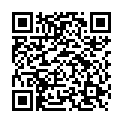|
|
|
| Module code: BSP-23 |
|
|
4S (4 hours per week) |
|
7 |
| Semester: 6 |
| Mandatory course: yes |
Language of instruction:
German |
Assessment:
BSP-23.1/.2: Module work (MA) (bn)
[updated 20.05.2020]
|
BSP-23 (P322-0003) Social work and early childhood, Bachelor, ASPO 01.10.2017
, semester 6, mandatory course
BSP-23 (P322-0003) Social work and early childhood, Bachelor, ASPO 01.10.2019
, semester 6, mandatory course
|
60 class hours (= 45 clock hours) over a 15-week period.
The total student study time is 210 hours (equivalent to 7 ECTS credits).
There are therefore 165 hours available for class preparation and follow-up work and exam preparation.
|
Recommended prerequisites (modules):
None.
|
Recommended as prerequisite for:
|
Module coordinator:
Prof. Dr. Mario Schreiner |
Lecturer: Prof. Dr. Mario Schreiner
[updated 26.08.2019]
|
Learning outcomes:
After successfully completing this course, students will:
- be able to describe selected fields of social work or childhood pedagogy and their approaches,
- be able to carry out situation, resource and problem analyses and establish a link between professional approaches and the respective field of work/action,
- be able to develop concepts for fields of work and action in social work and early childhood education,
- be able to derive the legal framework from selected fields of work,
- be able to apply methods and concepts from the respective field of work.
In addition, students will:
- be able to rethink selected theoretical and empirical questions from the field of social work and to relate them to the challenges of a migration society.
[updated 20.05.2020]
|
Module content:
BSP-23.1 Seminar on selected fields of work and activity in the fields of social work and childhood education
On the basis of Module 17.1 and the experience gained in the practical semester, students will receive further in-depth insight into selected fields of work and activity in social work or early childhood education. On the basis of a selected field of work, students will deepen their knowledge about the conceptual structure of their selected field, the legal framework and the corresponding didactic and methodological concepts. Students will study the respective problems and life situations of the respective target group from their selected field of work in detail. Students will analytically apply the social framework conditions that shape their selected field of work (e.g. law, politics, etc.). They will reflect on the role and duties of the specialists in their selected field of work and integrate these considerations into their concepts.
BSP-23.2 Seminar on selected theoretical and empirical issues II
Content is dependent on specific theoretical and empirical questions, for example interdisciplinary topics such as migration, interculturality, integration, etc.: Requirements for (social) educational action and social work organizations in migration societies. The seminar will discuss the questions that arise in the context of migration societies from a socio-scientific and socio-educational perspective. The theoretical foundation for the analysis of the fact that migration actually exists and is happening will be discussed. This is closely linked to interculturality and questions pertaining to integration and inclusion. Recent theoretical debates, concepts and empirical studies will be introduced and discussed in the class. The challenges to (social) educational action in the migration society, in the context of the knowledge base of social science migration and integration research, will be a special focus of this course.
[updated 20.05.2020]
|
Teaching methods/Media:
- Information (input) from the lecturers
- Practical studies in groups with class presentations of the results
- Guided excursions into the respective field of work
- Literature studies (individual work)
- Exercises within the framework of the seminar
- Selected approaches and methods will be tested through simulation or role playing.
- Guest lectures from professionals
- Independent study: Follow-up work and in-depth study using additional literature
- Short presentations on selected theoretical and empirical issues
[updated 20.05.2020]
|
Recommended or required reading:
Will be selected according to the respective field of work.
[updated 20.05.2020]
|


